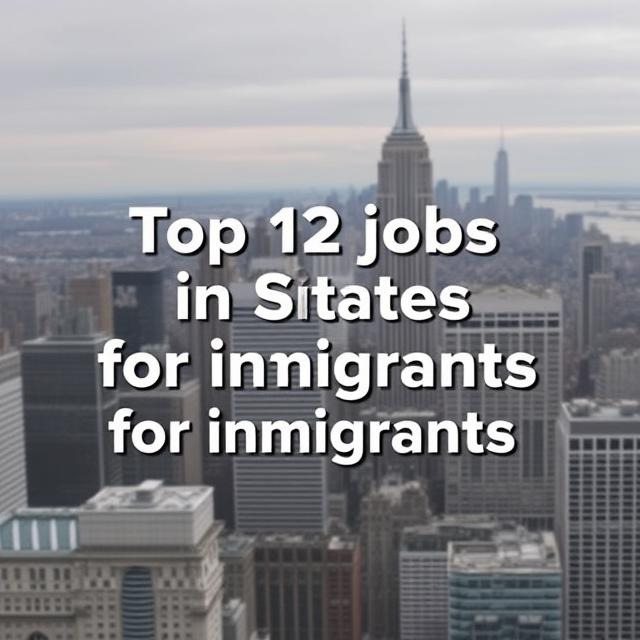Navigating the Path: How Foreign Nationals Can Apply for Caregiver Jobs in the United States
The United States faces a growing demand for qualified caregivers, creating opportunities for foreign nationals seeking employment in this vital sector. However, securing a caregiver job as a foreigner involves navigating a complex landscape of immigration regulations, certification requirements, and employment agency procedures. This comprehensive guide will equip you with the knowledge and resources you need to understand the process, improve your chances of success, and embark on a rewarding career as a caregiver in the US.
Understanding the Demand for Caregivers in the US
The aging population in the US is rapidly increasing, leading to a significant rise in the demand for caregivers. These dedicated individuals provide essential support to seniors, individuals with disabilities, and children, enabling them to live more comfortably and independently. This demand extends across various care settings, including:
- In-Home Care: Providing assistance with daily living activities, medication reminders, meal preparation, companionship, and personal hygiene in the client’s home.
- Assisted Living Facilities: Working as part of a team to provide care to residents in a supportive community setting.
- Nursing Homes: Offering specialized care to individuals with complex medical needs.
- Childcare Centers: Caring for children in a structured environment, fostering their development and well-being.
- Private Childcare (Nanny/Au Pair): Providing personalized care to children in the family’s home.
Immigration Requirements for Foreign Caregivers
Obtaining legal authorization to work in the US is the most crucial step for foreign nationals seeking caregiver jobs. There are several visa options to consider, each with specific requirements and limitations.
-
H-2B Visa (Temporary Non-Agricultural Worker): The H-2B visa is a temporary work visa specifically for non-agricultural jobs, which can include caregiver positions. However, it’s crucial to understand that the H-2B visa has annual limits, and the application process can be competitive.
-
Requirements:
- Job Offer: You need a valid job offer from a US employer who is willing to sponsor your visa. The employer must demonstrate that there are not enough qualified US workers available to fill the position.
- Labor Certification: The employer must obtain a temporary labor certification from the US Department of Labor (DOL). This certification confirms that hiring a foreign worker will not adversely affect the wages and working conditions of US workers.
- Petition Approval: The employer must file a Form I-129, Petition for a Nonimmigrant Worker, with U.S. Citizenship and Immigration Services (USCIS).
- Visa Interview: Once the petition is approved, you will need to attend a visa interview at a US embassy or consulate in your home country.
-
Important Considerations:
- Employer Sponsorship: Finding an employer willing to sponsor an H-2B visa can be challenging.
- Annual Cap: The H-2B visa has an annual cap, which is often reached quickly.
- Temporary Nature: The H-2B visa is temporary, typically valid for one year, with the possibility of extensions for up to three years.
-
USCIS (U.S. Citizenship and Immigration Services): https://www.uscis.gov/ – This website provides comprehensive information on all immigration-related matters, including visa requirements and application procedures.
-
DOL (U.S. Department of Labor): https://www.dol.gov/ – This website offers resources related to labor certification and wage standards.
-
-
Au Pair Visa (J-1 Visa Exchange Visitor Program): The Au Pair program allows young adults (typically aged 18-26) to live with a US host family and provide childcare in exchange for room, board, and a stipend.
-
Requirements:
- Age: Must be between 18 and 26 years old.
- English Proficiency: Must demonstrate sufficient English language proficiency.
- Education: Must have a secondary school diploma or equivalent.
- Childcare Experience: Must have demonstrable childcare experience.
- Criminal Background Check: Must pass a criminal background check.
- Sponsor Agency: Must work through a designated Au Pair sponsor agency.
-
Important Considerations:
- Specific Program Requirements: The Au Pair program has specific regulations regarding working hours, compensation, and educational opportunities.
- Cultural Exchange: The Au Pair program is primarily a cultural exchange program, with childcare being a component.
- Limited Duration: The Au Pair program typically lasts for one year, with the possibility of an extension.
-
U.S. Department of State – Exchange Visitor Program: https://j1visa.state.gov/programs/au-pair – Provides detailed information about the Au Pair program.
-
-
Family-Based Immigration: If you have a close family member who is a US citizen or lawful permanent resident, they may be able to sponsor you for a green card (lawful permanent residency). This can eventually lead to eligibility for many jobs, including caregiving.
- USCIS Website: https://www.uscis.gov/ – Provides information and application procedures for family-based immigration.
Essential Qualifications and Certifications
While immigration authorization is paramount, demonstrating your qualifications and skills is crucial for securing a caregiver job.
-
Education and Training:
- High School Diploma or Equivalent: A high school diploma or equivalent is typically required for most caregiver positions.
- Caregiving Training Programs: Completing a certified caregiver training program can significantly enhance your skills and marketability. These programs often cover topics such as:
- Basic First Aid and CPR
- Personal Care Assistance (bathing, dressing, toileting)
- Medication Reminders
- Nutrition and Meal Preparation
- Communication Skills
- Understanding Common Medical Conditions
- Certified Nursing Assistant (CNA) Certification: A CNA certification is often required for positions in nursing homes and assisted living facilities. This certification requires completing a state-approved training program and passing a certification exam.
-
Experience:
- Volunteer Experience: Volunteering in healthcare settings, such as hospitals, nursing homes, or community centers, can provide valuable experience and demonstrate your commitment to caregiving.
- Personal Experience: Caring for family members or friends can also be considered relevant experience.
- Professional Experience: Prior experience as a caregiver in your home country is highly valued.
-
Skills:
- Communication Skills: Excellent communication skills are essential for interacting with clients, families, and healthcare professionals.
- Empathy and Compassion: Caregiving requires a genuine desire to help others and provide compassionate support.
- Patience and Understanding: Working with individuals who have disabilities or health conditions can be challenging, requiring patience and understanding.
- Problem-Solving Skills: Caregivers often need to make quick decisions and solve problems independently.
- Physical Stamina: Some caregiving tasks may require physical stamina, such as lifting or assisting clients with mobility.
Finding Caregiver Jobs in the US
Once you have the necessary qualifications and immigration authorization, you can begin your job search. Here are some effective strategies:
- Online Job Boards:
- Indeed: https://www.indeed.com/
- Care.com: https://www.care.com/
- Glassdoor: https://www.glassdoor.com/
- LinkedIn: https://www.linkedin.com/
- Caregiver Agencies:
- Visiting Angels: https://www.visitingangels.com/
- Home Instead Senior Care: https://www.homeinstead.com/
- Right at Home: https://www.rightathome.net/
- Working with a caregiver agency can simplify the job search process, as the agency will handle background checks, screening, and matching you with suitable clients.
- Networking:
- Connect with individuals in the healthcare industry, such as nurses, social workers, and therapists.
- Attend healthcare-related events and conferences.
- Inform your friends and family about your job search.
Important Considerations and Ethical Practices
- Be Honest and Transparent: Provide accurate information about your qualifications, experience, and immigration status.
- Understand Your Rights: Familiarize yourself with US labor laws and your rights as an employee.
- Protect Yourself from Scams: Be wary of job offers that seem too good to be true, and never send money to potential employers.
- Respect Cultural Differences: Be sensitive to cultural differences and adapt your caregiving approach accordingly.
- Maintain Professional Boundaries: Establish clear boundaries with clients and families to maintain a professional relationship.
Conclusion
Securing a caregiver job in the US as a foreign national requires careful planning, diligent preparation, and a thorough understanding of immigration regulations and job market dynamics. By obtaining the necessary qualifications, exploring visa options, utilizing effective job search strategies, and adhering to ethical practices, you can significantly increase your chances of success and embark on a fulfilling career as a caregiver in the US. Remember to stay informed, persistent, and proactive throughout the process, and you can achieve your goals of providing compassionate care to those in need.




